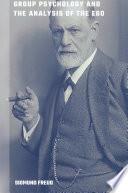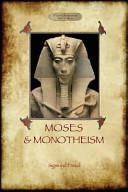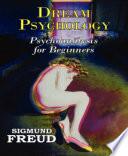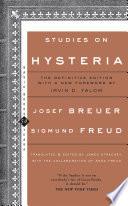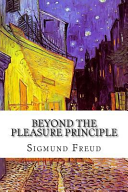“We are never so defenceless against suffering as when we love.”
Source: 1920s, Civilization and Its Discontents (1929), Ch. 2; as translated by James Strachey, p.63
Discover the profound insights of Sigmund Freud through his most famous quotes. Explore the depths of human psychology and the mysteries of the mind.
Sigmund Freud was an Austrian neurologist and the founder of psychoanalysis, a clinical method for evaluating and treating psychological issues stemming from conflicts in the mind. Born to Jewish parents in Austria, Freud qualified as a doctor of medicine in 1881 and established his clinical practice in Vienna. He developed therapeutic techniques such as free association and transference, revolutionizing the field of psychology. Freud's theories encompassed topics like sexual development, dreams, the unconscious mind, and the structure of the psyche. His work also explored religion and culture. Despite controversy surrounding psychoanalysis, Freud's influence on contemporary Western thought and popular culture remains significant.
Psychoanalysis, although declining as a diagnostic tool, still holds sway in psychology, psychiatry, psychotherapy, and the humanities. It continues to spark debates about its efficacy and scientific status, as well as its impact on feminism. Nevertheless, Freud's ideas have permeated modern society extensively. As poet W. H. Auden wrote in 1940, Freud created "a whole climate of opinion" that shapes how we live our lives today.

“We are never so defenceless against suffering as when we love.”
Source: 1920s, Civilization and Its Discontents (1929), Ch. 2; as translated by James Strachey, p.63
“Being entirely honest with oneself is a good exercise.”
Letter to Wilhelm Fliess (15 October 1897), as quoted in Origins of Psychoanalysis
1890s
“Everywhere I go I find that a poet has been there before me.”
As quoted in In factor of the sensitive man, and other essays (1976 edition) by Anais Nin, p.14
Attributed from posthumous publications
“Whoever loves become humble. Those who love have, so to speak, pawned a part of their narcissism.”
Wer verliebt ist, ist demütig. Wer liebt, hat sozusagen ein Stück seines Narzißmus eingebüßt.
"Gesammelte Schriften, Volume 6" (1924), p. 183
1920s
Source: 1920s, Civilization and Its Discontents (1929), Ch. 1, as translated by Joan Riviere (1961)
Context: Towards the outside, at any rate, the ego seems to maintain clear and sharp lines of demarcation. There is only one state — admittedly an unusual state, but not one that can be stigmatized as pathological — in which it does not do this. At the height of being in love the boundary between ego and object threatens to melt away. Against all the evidence of his senses, a man who is in love declares that "I" and "you" are one, and is prepared to behave as if it were a fact.
“How bold one gets when one is sure of being loved.”
Letter to his fiancée Martha Bernays (27 June 1882); published in Letters of Sigmund Freud 1873-1939 (1961), 10-12
1880s
Man kann sich des Eindrucks nicht erwehren, daß die Menschen gemeinhin mit falschen Maßstäben messen, Macht, Erfolg und Reichtum für sich anstreben und bei anderen bewundern, die wahren Werte des Lebens aber unterschätzen.
Source: 1920s, Civilization and Its Discontents (1929), Ch. 1, as translated by James Strachey, p.25
“The virtuous man contents himself with dreaming that which the wicked man does in actual life.”
1910s
Source: Quoting Plato, as translated by Abraham Arden Brill, "The Interpretation of Dreams" https://en.wikisource.org/wiki/Page:Freud_-_The_interpretation_of_dreams.djvu/511 (1913 edition), p.493
Summary of Freud's view found in Karen Armstrong's 'A History of God' (1993), p. 409
Misattributed
Source: Civilization and Its Discontents
Source: Sexuality and the Psychology of Love
p.190 https://books.google.com/books?id=hIqaep1qKRYC&printsec=frontcover&dq=isbn:039300743X&hl=en&sa=X&ved=0ahUKEwioupWF54_XAhUN6mMKHQdhBjcQ6AEIJjAA
1930s, "New Introductory Lectures on Psycho-analysis" https://books.google.com/books/about/New_Introductory_Lectures_on_Psycho_anal.html?id=hIqaep1qKRYC&printsec=frontcover&source=kp_read_button#v=onepage&q&f=false (1933)
Source: A General Introduction to Psychoanalysis
Source: 1920s, Civilization and Its Discontents (1929), Ch. 2, as translated by James Strachey, p.62
“The voice of the intellect is a soft one, but it does not rest until it has gained a hearing.”
1920s, The Future of an Illusion (1927)
Context: The voice of the intellect is a soft one, but it does not rest until it has gained a hearing. Ultimately, after endlessly repeated rebuffs, it succeeds. This is one of the few points in which it may be optimistic about the future of mankind, but in itself it signifies not a little.
“Immorality, no less than morality, has at all times found support in religion.”
Source: 1920s, The Future of an Illusion (1927), Ch. 7
“Conscience is the internal perception of the rejection of a particular wish operating within us.”
Totem and Taboo: Resemblances Between the Mental Lives of Savages and Neurotics (1913)
1910s
Source: Civilization and Its Discontents
“I will cure all the incurable nervous cases and through you I shall be healthy”
Letter to Martha Bernays, after receiving a travel grant he had been having dreams of receiving (20 June 1885)
1880s
Context: Princess, my little Princess,
Oh, how wonderful it will be! I am coming with money and staying a long time and bringing something beautiful for you and then go on to Paris and become a great scholar and then come back to Vienna with a huge, enormous halo, and then we will soon get married, and I will cure all the incurable nervous cases and through you I shall be healthy and I will go on kissing you till you are strong and gay and happy — and "if they haven't died, they are still alive today."
“He that has eyes to see and ears to hear may convince himself that no mortal can keep a secret.”
Fragment of an Analysis of a Case of Hysteria (1905) Ch. 2 : The First Dream
1900s
Source: Introductory Lectures on Psychoanalysis
Context: He that has eyes to see and ears to hear may convince himself that no mortal can keep a secret. If his lips are silent, he chatters with his fingertips; betrayal oozes out of him at every pore.
Source: 1920s, The Future of an Illusion (1927), Ch. 6
Source: Letters of Sigmund Freud, 1873-1939
Source: 1920s, The Future of an Illusion (1927)
“My love is something valuable to me which I ought not to throw away without reflection.”
Source: Civilization and Its Discontents
“The ego is not master in its own house.”
A Difficulty in the Path of Psycho-Analysis (1917)
1910s
Source: Reflections on War and Death
Ein Mensch wie ich kann ohne Steckenpferd, ohne herrschende Leidenschaften, ohne einen Tyrannen in Schillers Worten, nicht leben. Ich habe meinen Tyrannen gefunden und in seinem Dienst kenne ich kein Maß.
Letter to Wilhelm Fliess (1895), as quoted in Journal of the History of the Behavioral Sciences Vol 3-4 (1967) p. 159
1890s
Context: A man like me cannot live without a hobby-horse, a consuming passion — in Schiller's words a tyrant. I have found my tyrant, and in his service I know no limits. My tyrant is psychology. it has always been my distant, beckoning goal and now since I have hit upon the neuroses, it has come so much the nearer.
“One might compare the relation of the ego to the id with that between a rider and his horse.”
The Anatomy of the Mental Personality (Lecture 31)
1930s, "New Introductory Lectures on Psycho-analysis" https://books.google.com/books/about/New_Introductory_Lectures_on_Psycho_anal.html?id=hIqaep1qKRYC&printsec=frontcover&source=kp_read_button#v=onepage&q&f=false (1933)
Context: One might compare the relation of the ego to the id with that between a rider and his horse. The horse provides the locomotor energy, and the rider has the prerogative of determining the goal and of guiding the movements of his powerful mount towards it. But all too often in the relations between the ego and the id we find a picture of the less ideal situation in which the rider is obliged to guide his horse in the direction in which it itself wants to go.
Source: 1920s, The Future of an Illusion (1927), Ch. 8
Context: Our knowledge of the historical worth of certain religious doctrines increases our respect for them, but does not invalidate our proposal that they should cease to be put forward as the reasons for the precepts of civilization. On the contrary! Those historical residues have helped us to view religious teachings, as it were, as neurotic relics, and we may now argue that the time has probably come, as it does in an analytic treatment, for replacing the effects of repression by the results of the rational operation of the intellect.
“Aggressiveness was not created by property.”
Source: 1920s, Civilization and Its Discontents (1929), Ch. 5, as translated by James Strachey and Anna Freud (1961)
Context: I cannot inquire into whether the abolition of private property is expedient or advantageous. But I am able to recognize that the psychological premisses on which the [system]] is based are an untenable illusion. In abolishing private property we deprive the human love of aggression of one of its instruments, certainly a strong one, though certainly not the strongest, but we have not altered the differences in power and influence which are misused by aggressiveness, nor have we altered anything in its nature. Aggressiveness was not created by property. It reigned almost without limit in primitive times, when property was still very scanty, and it already shows itself in the nursery almost before property has given up its primal, anal form; it forms the basis of every relation of affection and love among people (with the single exception, perhaps, of the mother's relations to her male child).
We term sexual activity perverse when it has renounced the aim of reproduction and follows the pursuit of pleasure as an independent goal. And so you realize that the turning point in the development of sexual life lies in its subjugation to the purpose of reproduction. Everything this side of the turning point, everything that has given up this purpose and serves the pursuit of pleasure alone, must carry the term "perverse" and as such be regarded with contempt.
A General Introduction to Psychoanalysis, 1920, preface by G. Stanley Hall, Twentieth Lecture: General Theory of the Neuroses, The Sexual Life of Man, New York, Boni and Liveright, p. 273. (reprinted 1975 by Pocket pub. ISBN 0671800329 ISBN 978-0671800321and 2012 by Emereo Publishing, ISBN 9781486414147 http://books.google.com/books?id=zCgFAQAAIAAJ&pg=PA273&dq=%22common+characteristic+of+all+perversions%22&hl=en&sa=X&ei=VaQtUvq2H4bS9gSy3YCoCQ&ved=0CC8Q6AEwAA#v=onepage&q=%22common%20characteristic%20of%20all%20perversions%22&f=false (Harvard sociologist and a founder of the Rural Sociological Society Carle C. Zimmerman (1897-1983) notes the following in regard to Freud's early thinking on human sexuality: "Nor did the atheist Sigmund Freud perceive any difficulty in detecting the intrinsic perversity of contraception and allied deviations." see, Marriage and the Family, A Text for Moderns, (1956), Carl C. Zimmerman, Ph.D., Lucius F. Cervantes, S.J., PhD. (Harvard, Regis), Regnery, Chicago, Ill., p. 329. http://babel.hathitrust.org/cgi/pt?id=uc1.b4518815;view=1up;seq=347 http://books.google.com/books?id=Jt9-AAAAIAAJ&q=%22common+characteristic+of+all+perversions%22&dq=%22common+characteristic+of+all+perversions%22&hl=en&sa=X&ei=by3cU-y9OsOhyAS2loKgAw&ved=0CCkQ6AEwAg
1920s
Source: 1920s, The Future of an Illusion (1927), Ch. 10
A Philosophy of Life (Lecture 35)
1930s, "New Introductory Lectures on Psycho-analysis" https://books.google.com/books/about/New_Introductory_Lectures_on_Psycho_anal.html?id=hIqaep1qKRYC&printsec=frontcover&source=kp_read_button#v=onepage&q&f=false (1933)
Source: New Introductory Lectures on Psychoanalysis
Variant: Where questions of religion are concerned, people are guilty of every possible sort of dishonesty and intellectual misdemeanor.
Source: 1920s, The Future of an Illusion (1927), Ch. 6
“America is a mistake, admittedly a gigantic mistake, but a mistake nevertheless.”
Remark to Ernest Jones as quoted in The Life and Work of Sigmund Freud: Years of maturity, 1901-1919 (1957) by Ernest Jones, p. 60
Also quoted as, "Yes, America is gigantic, but a gigantic mistake." in Memories of a Psycho-analyst, ch.9 (1959) by Ernest Jones; and as, "America is the most grandiose experiment the world has seen, but I am afraid it is not going to be a success." in Freud: the Man and his Cause, pt. 3, ch. 12, (1980), by Ronald W. Clark; as quoted in Penguin Dictionary of Modern Quotations by Robert Andrews, Penguin Books, 2001.
Attributed from posthumous publications
“The intention that man should be happy is not in the plan of Creation.”
Variant: One feels inclined to say that the intention that man should be "happy" is not included in the plan of "Creation."
Source: 1920s, Civilization and Its Discontents (1929), Ch. 2, as translated by James Strachey, p.53
“Where id is, there shall ego be.”
The Anatomy of the Mental Personality (Lecture 31)
1930s, "New Introductory Lectures on Psycho-analysis" https://books.google.com/books/about/New_Introductory_Lectures_on_Psycho_anal.html?id=hIqaep1qKRYC&printsec=frontcover&source=kp_read_button#v=onepage&q&f=false (1933)
Source: The Ego and the Id
“Loneliness and darkness have just robbed me of my valuables.”
Source: Introduction à la psychanalyse
Letter to Ernest Jones (1933), as quoted in The Columbia Dictionary of Quotations (1993) by Robert Andrews, p. 779
1930s
“Dreams are the royal road to the unconscious.”
Source: The Interpretation of Dreams
Source: Civilization and Its Discontents
“I had thought about cocaine in a kind of day-dream.”
Source: The Interpretation of Dreams
Source: Group Psychology and the Analysis of the Ego



